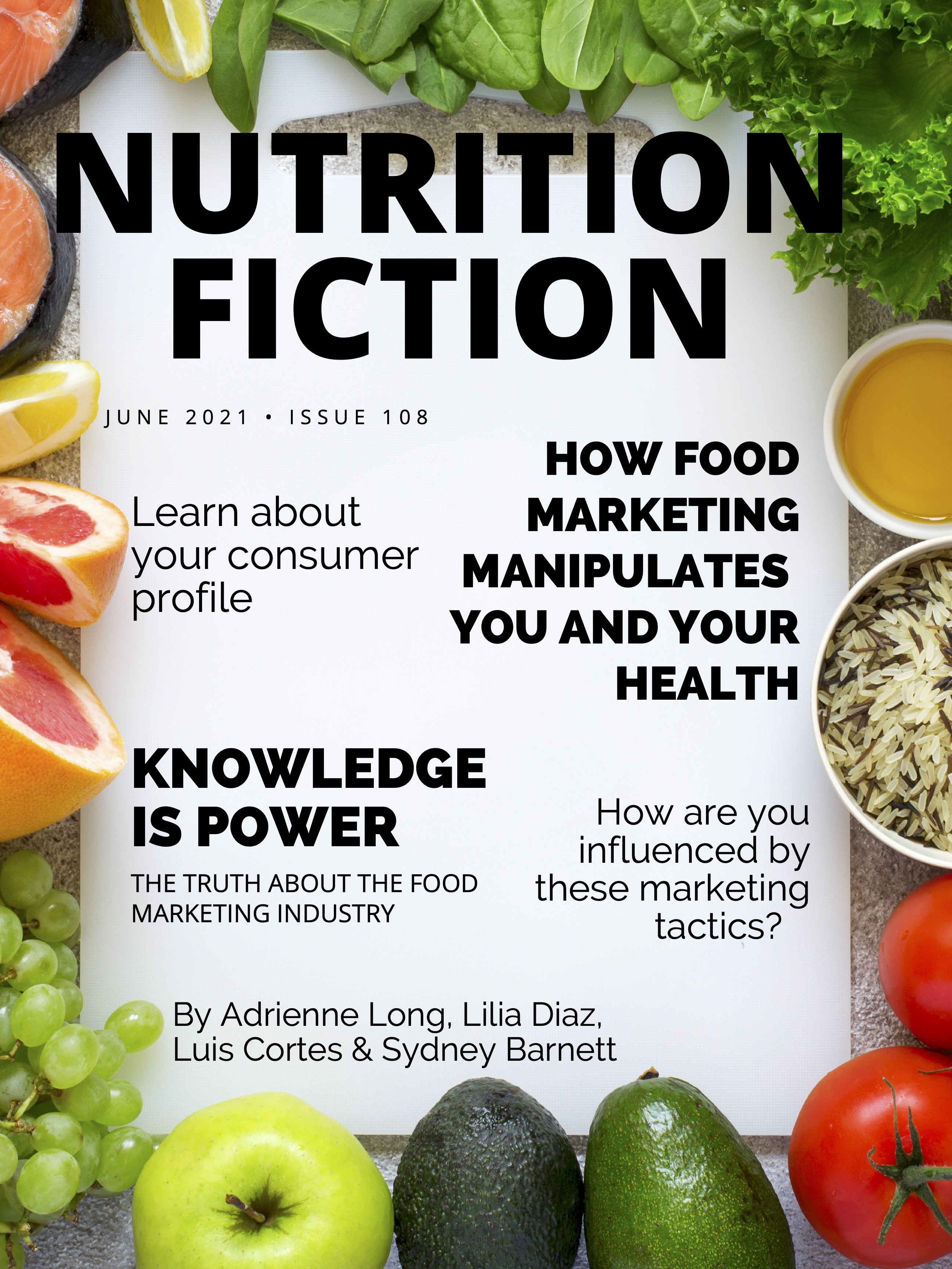Nutrition Fiction: How food marketing manipulates you and your health

By: Adrienne Long, Lilia Diaz, Luis Cortes, Sydney Barnett
Who really decides what goes in your grocery cart? It may be the puppeteers behind nutrition decisions.
Nutrition has the potential to have a positive or negative impact on human health. Historically, food marketing techniques prioritize increasing profit margins over public health promotion. For the majority of consumers, the concept of “healthy food” is incredibly abstract. From the consumer perspective, there are many different factors to consider when deciding which foods to purchase. Whether one relies on the way a food item (including its packaging, labeling, store placement, etc.) appeals to their senses, emotions, thoughts, or induces them to take action determines what type of consumer they are. Navigating the grocery store is analogous to navigating a country with a foreign language. Unfortunately, consumers do not realize the conundrum of their food landscape. “Nutrition Fiction” provides readers with the space to reflect on how they make decisions when selecting food items. Do they only use the colorful front label of cereal boxes? Do they intentionally read the nutrition label, and if they do, do they fully understand it?
“Nutrition Fiction” questions the ethics of food marketing tactics. Food companies unfairly target groups that are already vulnerable to manipulation, such as children, caregivers, and people of color. As a result, these groups consume more unhealthy foods and are at an increased risk of health-related diseases. To further complicate the situation, individuals may find themselves living in a food swamp or food desert, where they face significant geographic barriers to accessing nutritious food. Other factors that can influence diet include socioeconomic status and nutrition literacy.
In addition, nutrition, or lack thereof, can influence physical health through epigenetics. The presence or deficit of certain nutrients can affect processes that alter gene expression. Subsequently, the development of certain diseases becomes more or less likely. Who and what influences consumer nutrition has long-term effects on public health.
Really excellent work bringing this all together! I particularly enjoy the way it addresses the reader directly and leads us through the science and the politics of labeling and marketing to the “fiction” at the end, which is very interesting. A great, deep exploration of nutrition and marketing! –Prof. Kelty
comments powered by Disqus